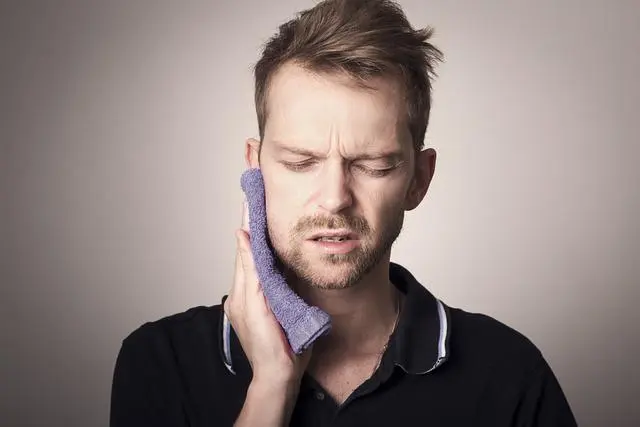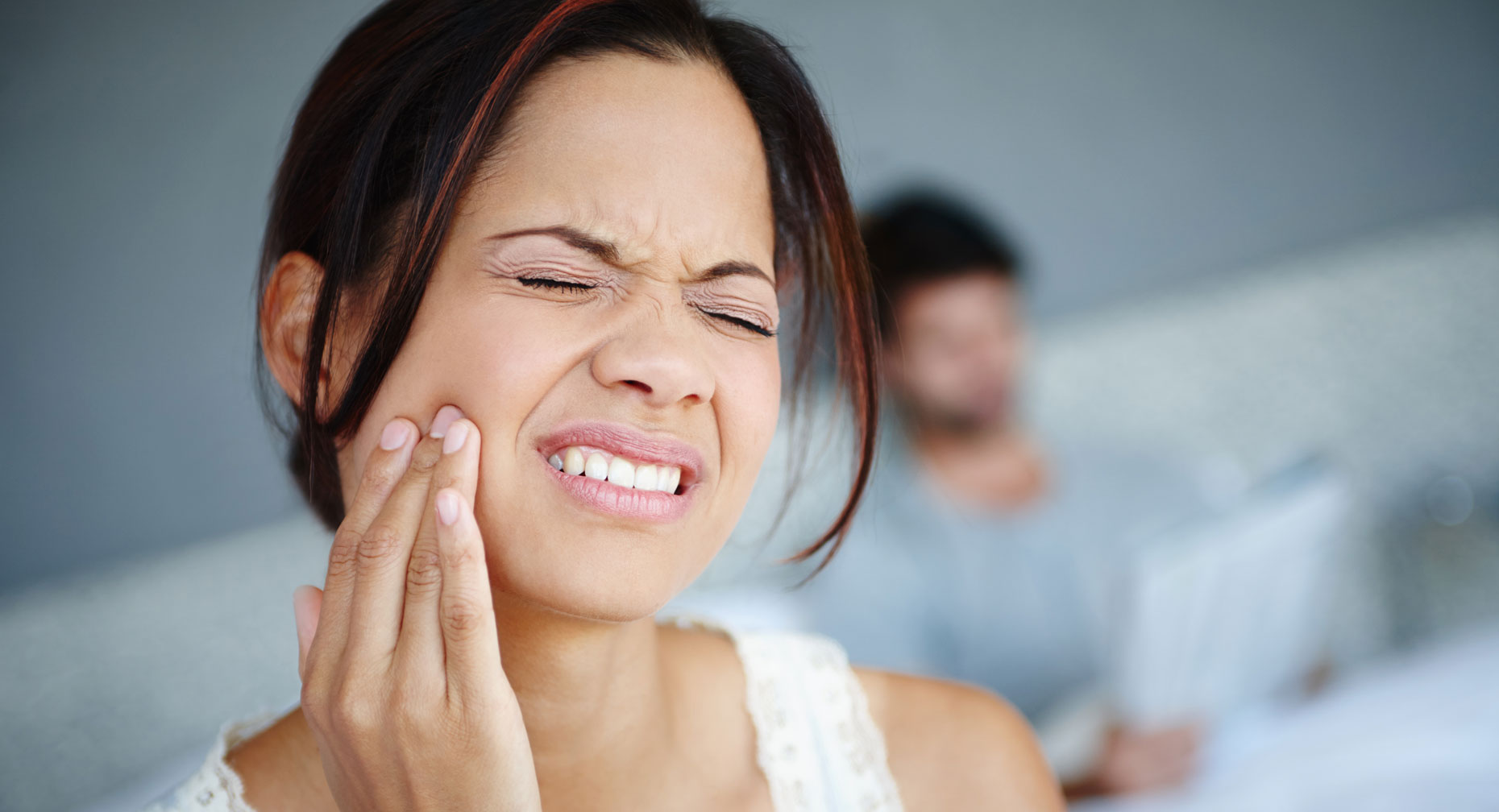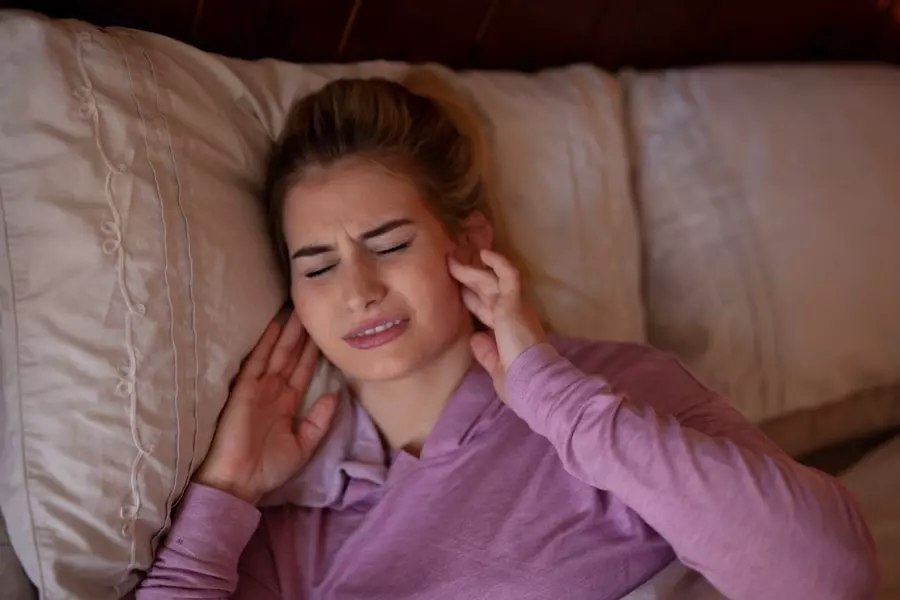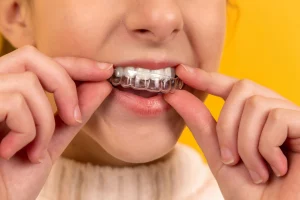Last Updated on: 4th December 2024, 05:31 pm
What causes jaw pain on one side?
There are a variety of causes of jaw pain on one side; among the most common are of dental or periodontal origin. It relates to the musculoskeletal structures close to the side of your jaw. However, there are cases when the pain is “heterotopic .”It may have a cardiac origin, stem from arthritis, or other conditions. The pain’s origin must be diagnosed promptly to be treated effectively.

Here are 7 reasons why it’s happening:
- Jaw pain associated with dental pain: Dental pain is mainly caused by a deep cavity that reaches the pulp. This pulp is often infected, causing pain that radiates or extends to the jaw. Other dental issues may be a trauma that causes a fracture in the root that radiates to the mandibular region.
- Jaw pain associated with periodontal disease: The inflammation of the gums and periodontal tissues will also produce jaw pain on one side, especially when chewing or the teeth come into contact with each other. Thus, it is essential to maintain proper oral hygiene.
- Jaw pain associated with infections: Among the infections associated with jaw pain, osteomyelitis affects the bones and surrounding tissues. When affecting the jaw bone, it will also produce increased body temperature (fever) and increased facial volume (swelling).
- Jaw pain associated with bruxism or teeth grinding: Bruxism or teeth clenching is mostly involuntary and triggered by stress. It usually occurs at night during sleep. It exerts a force on the teeth and oral musculature, thereby causing jaw pain.
- Jaw pain associated with TMJ disorders (Temporomandibular Joint Disorders): Various research studies tell us that about 50% of the population suffers from disorders in the temporomandibular joint, the one in charge of performing jaw movements. These disorders will trigger pulsating pain – often chronic – that radiates to the jaw.
- Jaw pain associated with heart disease: There are associations between mandibular pain and ischemic heart disease; There may be dental pain and a headache.
- Jaw pain associated with arthritis: Pain due to arthritis in the temporomandibular joint and muscle pain are usually associated with jaw pain on one side due to its irradiation to nearby areas of the jaw. In turn, this pain can also radiate to the neck and left arm, possibly confused with pain from angina pectoris.
Symptoms of jaw pain
Although the cause may have various reasons, it is vital to recognize the main reason that triggers this pain. This will lead to an appropriate treatment plan. Therefore, it is crucial to have an adequate clinical examination, accompanied by additional tests – such as laboratory tests, radiographic examinations, and MRI, among others.

According to the American Dental Association (ADA), among the most common symptoms of jaw pain on one side are:
- Otalgia, or pain around the ear
- Radiating orofacial pain
- Biting pain
- Myalgia, or head, neck, and facial pain
Jaw Pain Treatment and Home Care
Depending upon the origin of the pain, the following treatments may be suggested:
- Mouth guard: the use of a mouth guard helps distribute the forces exerted in the case of bruxism or involuntary clenching, reducing their effects, such as jaw pain on one side and alterations in the dental structure.

- Pharmacotherapy for pain: the treatment for chronic mandibular pain is based on the analgesic scale of the World health organization (WHO), according to the intensity of the pain. Among the drugs that can be used are NSAIDs, corticosteroids, opioids, and adjuvants such as muscle relaxants, anxiolytics hypnotics, and antidepressants.
- Exercise: It is fundamental to reduce stress and, therefore, avoid bruxism or grinding your teeth.
- Antibiotics: In the case of infections, the use of antibiotics is recommended by the dentist to eliminate or diminish the microorganisms present, and consequently jaw pain.
- Root canal: In the event that the patient presents a deep carious lesion with pulp involvement, causing radiating pain in the jaw region, a root canal procedure can reduce the resulting bacterial content and inflammation.
- Interconsultations: It is important to schedule a medical appointment to rule out other systemic diseases reflected in jaw pain. It is ideal to have periodic checkups.
When to see a doctor
Generally, jaw pain on one side is not necessarily serious. Although, it may indicate a more serious problem with your oral health that requires treatment if it is accompanied by certain symptoms. Suppose you’re having difficulty and pain when you are eating, drinking, swallowing, or breathing. Or perhaps there is a swelling accompanied by a fever that does not go away. These signs can point to more severe cases, and you may want to get a consultation from your dentist to have it checked immediately.
If you have any questions about this topic or any other, please feel free to contact or visit us. As well as on our Facebook page. At Channel Island Family Dental, we are always attentive to your needs to make a timely diagnosis. In addition, our dentists in Oxnard, Santa Paula, Newbury Park Ventura, and Port Hueneme will guide you to the best treatment to give you back your best smile.




